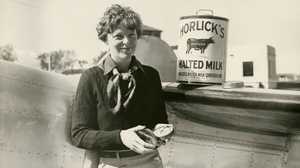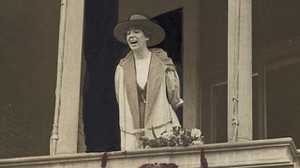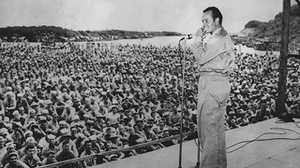How Important is Military Service?
From the Collections: The Presidents | Leadership in times of crisisThe Fighter Pilot
To avoid combat in Vietnam, George W. Bush joined the 147th Texas Air National Guard, along with other sons of wealthy and well-connected Texans. "In his heart of hearts he did not want to go to Vietnam,” said writer Bill Minutaglio, “but he knew damn well that his father's next step had been to join the military and then become a war hero."
From the film: George W. Bush
Combat Pilot
George H.W. Bush was changed forever by his time as a combat pilot in World War II.
From the film: George H.W. Bush
Nuclear Submarine Officer
Jimmy Carter learned punctuality, discipline, and order from his time in the Navy. Six years of hard work earned him the position of Senior Officer of the U.S.S. Seawolf.
From the film: Jimmy Carter
The Rescue
On a starless night in August 1943, a Japanese destroyer split Kennedy's PT-109 boat in half. The crew had been left for dead, but the future president felt it was his duty to get his men to safety -- and he was going to spare no effort to do so.
From the film: JFK
Captain Harry
Captain Harry Truman's leadership during his first clash with the Germans made his men look at him in an entirely new light.
From the film: truman
Committed to the Cause
James Garfield joined the Union Army in 1861, shortly after the start of hostilities. When he came face to face with slavery during his time fighting in the south, Garfield's belief in the cause of abolition and freedom was strengthened. "This is my hope," he wrote, "that when we shall return to civil life, there shall go up an unrelenting cry for freedom."







